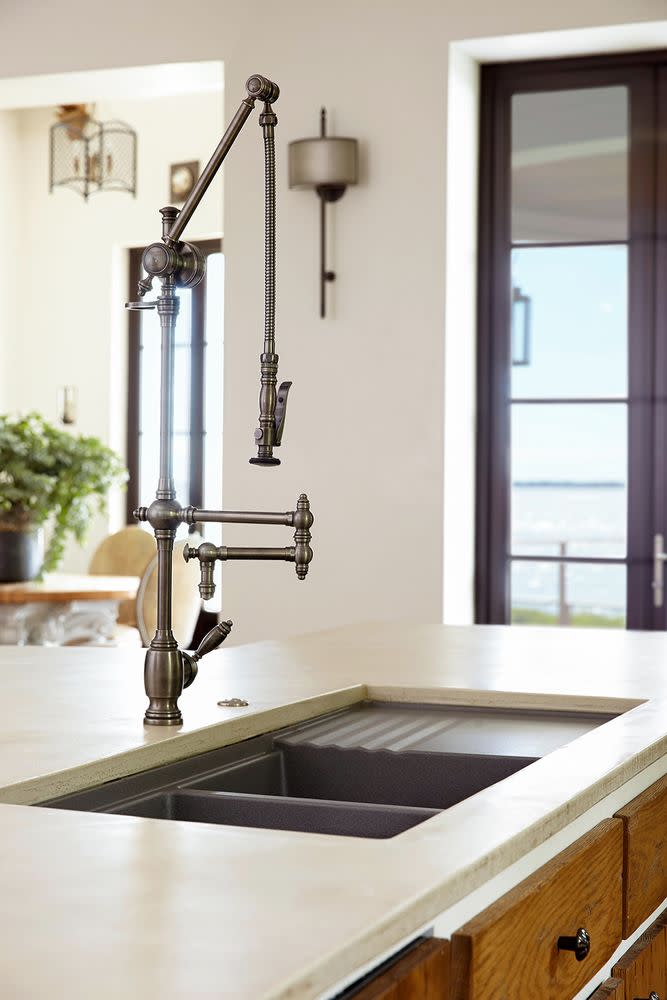Buyer's Guide to Composite Granite Sinks
A composite granite sink is an engineered product manufactured using a mix of granite stone dust and acrylic resins molded into sink form. Composite sinks composed of quartz dust and acrylic resins are close cousins and the labels "composite stone " and "granite sink" are sometimes used interchangeably to describe either material. You'll find both pros and cons for including a composite granite sink in your kitchen. Read our buying guide, below, to see if a composite granite sink is right for your kitchen remodel.

Are Granite Composite Sinks Durable?
In short, yes. Quality composite granite sinks are formed under high pressure, making them nonporous, hygienic, and resistant to heat, stains, scratches, and chips. Plus, unlike natural granite, a composite granite sink surface won't require sealing.
However, cleaning and removing stains from a granite composite sink is another story. Harsh chemicals can damage a composite granite sink, so follow the manufacturer's suggestions for cleaning the surface as well as products to avoid pouring into the sink. Some composite granite sinks can be damaged by heat, resulting in blemishes from melting resins, and the material does scratch. Check the manufacturer warranty and select a product designed for high heat-resistance.
Related: Find the Best Kitchen Faucet
How Do You Restore a Composite Sink?
Composite sinks do require a certain amount of upkeep to keep the protective coating intact. To do so, apply a cleaner and sealer to the sink with a soft cloth. Scrub clean and wipe dry before finishing the restoring job with a polishing agent.
You should only need to do this restoring process when you start to notice your composite sink looking hazy, according to Supreme Surface Cleaners. The hazy look means the protective surface is wearing away and the minerals from the water are causing buildup.
Composite Granite Sinks Advantages
1. Variety: You'll find a wide range of composite granite sink styles, sizes, shapes, finishes, and color options to complement your countertops. White, black, and brown remain the most popular color choices. When considering granite composite sinks vs. stainless-steel sinks, you’ll have many more options with the former.
2. Consistency: An authentic granite stone sink features the natural variations of stone throughout the material. A composite granite sink, however, features uniform color throughout the material.
3. Cost: A composite granite sink generally costs less than a natural granite sink.
Composite Granite Sinks Disadvantages
1. Hardness: While some sink materials are more forgiving, composite granite is hard enough to break glassware when dropped onto the surface. This granite composite sink problem is something to consider if you frequently wash breakable dishes in the sink.
2. Color uniformity: If you want the authentic look of granite, a composite granite sink is uniform in pattern and color and doesn't feature variations like natural granite.
3. Cost: Quality composite granite sinks are more costly than sink materials such as stainless steel and porcelain.

